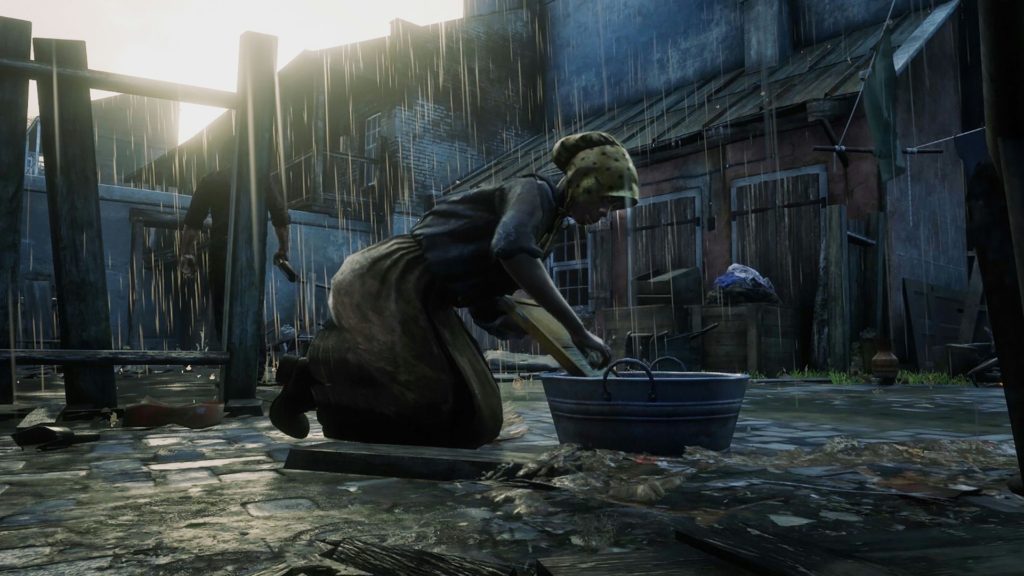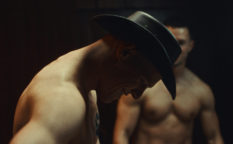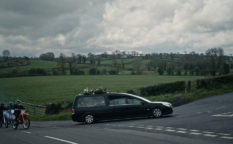Locarno review: Hardly Working (2022)
Pardi di Domani
International Competition

There is something deeply fascinating about open-world games. Unlike traditional narrative games, whereby you must progress through a series of missions in order to “complete” the story, the open-world allows you to do almost whatever you want. In Red Dead Redemption 2 — released in 2018 and considered to be one of the most popular video games of all time — you can explore over 75 square miles of territory, bigger than most city centres, allowing for the opportunity to completely eschew the main storyline in favour of pure discovery.
Dotted around this huge world — which required brutal 100-hour weeks for Rockstar staff to render on time — are over 1000 non-playable characters. Whether it’s the carpenter drilling in 120 nails a day, the laundress forever washing the same dirty rag or a cleaning lady sweeping the same dusty boardwalk on repeat, we obverse the same motions over and over again, these characters seemingly stuck on an endless loop. Each day is almost exactly the same, glitches notwithstanding, and nothing ever progresses.
If you simply played Red Dead Redemption 2 — as I did at my family home during a long quarantine period (alongside various murderous rampages) — you would miss all of these tragic details. Hardly Working takes the time (and it must’ve taken a lot of time to record these characters) to really observe these people, never interfering with their lives, in order to see how trapped they truly are. Westworld couldn’t capture in multiple seasons what Hardly Working achieves in a fleet 20 minutes.
I’d previously seen Total Refusal’s How to Disappear at Berlinale 2020, which explored the possibility of escape in Battlefield V, creating an anti-war film completely within the boundaries of a war game. It was my favourite short film of the festival, both in its abstract strangeness, and the ways it turned the game inside out in order to provide a fascinating critique of the way we depict war. With Hardly Working, which explores the lives of the Western’s side-characters, a game about the emergence of capitalism in American life is turned into an engaging anti-capitalist work of art.
Alongside Film Noir, the Western is easily the most American of genres, using myth-making to show how capitalism used violence, extortion, and both indentured and slave labour to turn vast, empty spaces into pure profit-making enterprises. In John Ford’s films, we see the sprouting of democracy and civic duty in Who Shot Liberty Valance?, a panoramic portrait of American society in Stagecoach, and the tension between white and native people in The Searchers. If Ford understood the difficulties of the West turning into a democratic and egalitarian space, filmmakers like Sergio Leone and Sam Peckinpah fully deconstructed it, turning it into a bloody battleground where only the most cynical manage to survive. All these films are tributes to capitalism — either as the eventual endpoint of Western expansion, or as a reward for endless violence.
Featuring acute narration by Jacob Banigan, which occasionally dips into didacticism, Hardly Working argues that capitalism has no end-goal. It simply traps us in the same pointless motions. There’s a reason that the term “NPC” has crossed over in the mainstream as an insult for someone working a dead-end “bullshit job”. It gives us the language to explain what it’s like to live without real purpose. But the quasi-marxist Austrian collective Total Refusal aren’t quite so bleak-minded, tapping into the idea of idleness, which all NPCs practice at one point or another — whether it’s staring into space, enjoying a night-long cigarette, or standing in the rain — as a form of rebellion, stealing time against one’s own capitalist oppressor.
This film hits the zeitgeist right on the head. in the wake of the coronavirus pandemic, both “quiet quitting” in the West and the “lying flat” movement in China have risen in prominence. Many people are just doing the bare minimum, pretending to be present while working remotely, or just looking busy while sat at their desk. If the current worker under capitalism can be characterised as an NPC, then idleness is the only way to refuse your destiny. To beat the game, you have to stop playing.
Director / Screenplay/ Cinematographer/ Sound recording/ Editor (Total Refusal): Susanna Flock, Robin Klengel, Leonhard Müllner, Michael Stumpf
Sound design: Bernhard Zorzi
Composer: Adrian Haim
Script: Susanna Flock, Robin Klengel, Leonhard Müllner, Michael Stumpf Translation: Michael Stumpf
Modding: RCPisawesome
Scenery: Rockstar Games
















